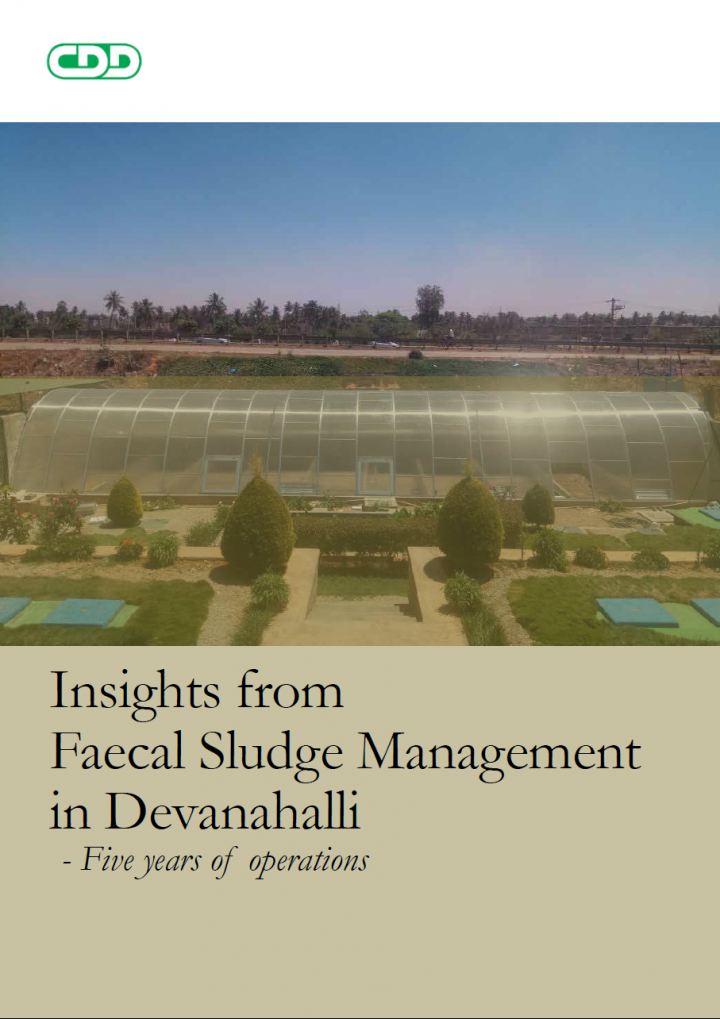Insights from Faecal Sludge Management in Devanahalli Five years of operations CDD Society (2020)
The central questions that this thematic note seeks to address include: What can municipalities learn about creating a conducive enabling environment for faecal sludge management (FSM)? How can engineers create Faecal sludge treatment plant (FSTP) designs that work well on the ground both technically and financially?
The Swachh Bharat Mission (SBM) has made significant strides in addressing the need for toilet infrastructure in India. To realize public health and environmental quality goals related to this development, there is an increasing need for effective solid and liquid waste management. Currently, about one-third of India is connected to piped sewers. While infrastructure is being built to cover unserved cities and towns, sanitation goals are not being
achieved as the pace of these developments often falls behind rapid population growth and urbanization rates. FSM is emerging as a viable alternative to costly and slow-to-implement centralized systems. This is particularly true for those municipalities that face constraints of capital availability and skilled human resources, limitations of existing onsite sanitation systems and challenges like steep topography. As a result, a flourishing FSM sector is evolving in India, with 109 FSTPs completed in 14 states and another 193 FSTPs under construction (as per information available on 16 July 2020 from Centre for Policy Research). New FSTPs face hurdles, due to inadequate planning and implementation arising from limited operational, technical and financial experience of FSTP operations.
This publication presents CDD Society’s critical learnings from the continued engagement, for implementation and operations, of Devanahalli’s FSTP from 2015 –2020. The Devanahalli FSTP draws upon CDD Society’s longstanding design concepts of nature-based, anaerobic digestion, gravity-based flow, minimal operation and maintenance, low energy use, no chemical use and superior aesthetics. Built at a capital and operational cost of INR 90 lakh and INR 24 lakh per year respectively, coupled with a revenue generation model based on co-composting, makes it a compelling proposition for sustainable FSM operations.
Bibliographic information
CDD Society (2020). Insights from Faecal Sludge Management in Devanahalli Five years of operations Consortium for DEWATS Dissemination (CDD) Society, Bengaluru
Filter / Tags
Faecal sludge treatment processesFaeces or faecal sludgeEnglish

